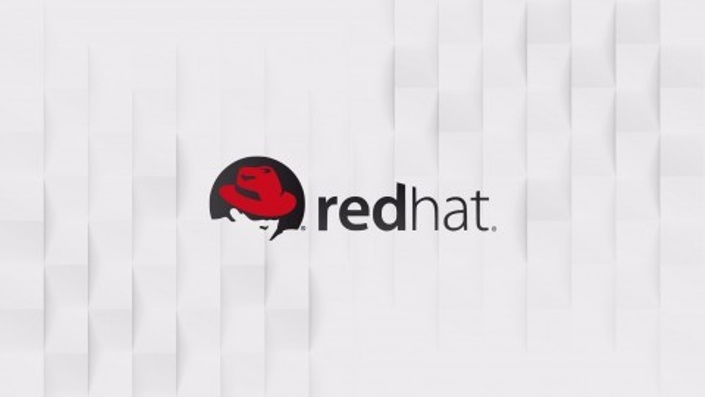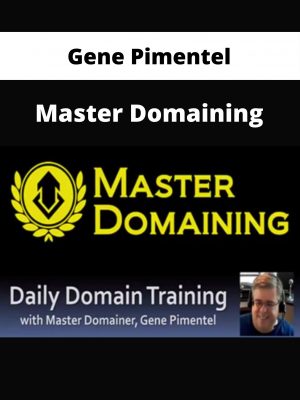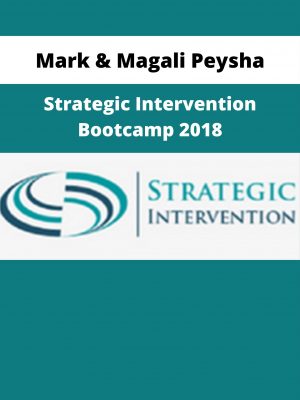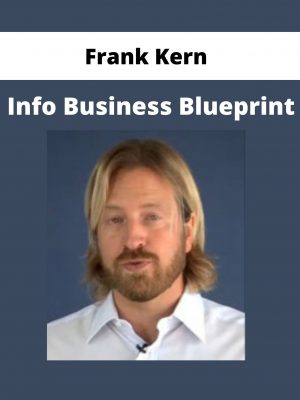Jerry Banfield with EDUfyre – CentOS and Red Hat Linux to Certified System Administrator!
$199 Original price was: $199.$40Current price is: $40.
Shopping Instructions:
- DISCOUNT 15% : SHOP15
- Product Delivery: Within 1 – 12 hours after purchase.
Then, into the file system navigation and command lines. Finally, you experience the packet manager and are ready to dive deeper into the material!
Jerry Banfield with EDUfyre – CentOS and Red Hat Linux to Certified System Administrator!
You can use this course immediately to inspire your learning with Red Hat Linux and your preparation for the RedHat Certified System Administrator Exam (RHCSA)! Ask any question you have about CentOS, Red Hat Linux, or the RHCSA and get an answer quickly! Watch the promo video to see what kind of learning experience you can expect in the course!
Whether you have no experience with Red Hat Linux or any other type of Linux operating system, you can count on this course to get you ed with the basics and show you what to do all the way into the advanced material. You get to see immediately why Linux is worth learning and using. Next, a basic familiarization with the graphic user interface leaves you feeling like you know your way around. Then, into the file system navigation and command lines. Finally, you experience the packet manager and are ready to dive deeper into the material!
If you are a veteran already at Red Hat Linux and want to continue your Red Hat Linux certification training, you will get the essentials for the exam delivered through three chapters explaining the key functions and highlighting what you need to know for the test. The key with passing any exam is simply effort. This course gives you another excellent resource to use along with your existing study materials to make sure you pass the RHCSA exam!
Thank you for reading this! Ermin and I look forward to serving you as a student in our course!
Your Instructor(s)
Jerry Banfield with EDUfyre
Jerry Banfield with EDUfyre
In 2005 while I was in college at the University of South Carolina, I tried to working online. I signed up for an MLM program and a survey website. A month later, I had refunds from both and figured working online was not possible because everything was a scam. The truth was I was afraid to fail again.
In 2011, I moved in with my wife and launched an online business focusing on video game addiction in an attempt to avoid dealing with any of my other problems. In a few months, I changed my business to selling shirts because I realized there was no money in video game addiction. A year after ing my business, I dropped out of my criminology PHD program at the University of South Florida to run my business full time which by then had changed to helping clients with Facebook and Google ads based on my experience failing to do them successfully for myself.
In 2013, I ing sharing everything I knew for free on YouTube because I hoped it would help me get more clients. By April 2014, I was nearly bankrupt after failing at 15+ different business models. I was also nearly dead from trying to drink the pain away and fortunately the fear of death motivated me to get into recovery. Being in recovery motivated me to focus more on being of true service to others and less on what I would get out of it. I ed making courses online with Udemy which soon turned into my first real business. I partnered with as many talented instructors as I could and learned from top instructors how to get my courses the most sales.
In 2015, I tried making some inspirational videos sharing what I learned in recovery and got an amazing response on YouTube. To make the background on my videos more interesting, I ed making the inspirational videos while playing video games. To make a more helpful website, I hired a freelancer to convert the videos into blog posts including this about page originally.
Get immediately download Jerry Banfield with EDUfyre – CentOS and Red Hat Linux to Certified System Administrator!
Course Curriculum
Thank you for taking this course! Find out what value you get immediately!
Introduction to the course. (8:53)
Why learn Linux? (14:43)
Installing RedHat or CentOS with minimal modifications to your current system.
Downloading, installing and configuring VirtualBox on Windows 8. (12:21)
Create a Red Hat virtual machine part 1. (18:05)
Create a Red Hat virtual machine part 2. (14:36)
Create a Red Hat virtual machine part 3. (17:40)
Installing RedHat or CentOS with a dual boot approach on WIndows 8
How to dual boot Red Hat and windows 8 part 1. (18:42)
How to dual boot Red Hat and windows 8 part 2. (8:15)
Linux Graphical User Interface (GUI).
Basic familiarization with Linux Graphical user interface part 1. (10:04)
Basic familiarization with Linux Graphical user interface part 2. (13:36)
Linux command line.
File system navigation. Commands “ls, cd, pwd” part 1. (16:14)
File system navigation. Commands “ls, cd, pwd” part 2. (14:08)
Finding files. Commands “find, locate, updatedb, man.” (19:46)
File and folder ownership and permissions. Commands “chown, chmod” part 1. (14:00)
File and folder ownership and permissions. Commands “chown, chmod” part 2. (8:47)
Move, delete and copy files. Commands “mv, rm, cp.” (12:58)
Commands “grep, pipe, echo, cat.” (18:55)
Yum packet manager part 1. (19:49)
Yum packet manager part 2. (14:27)
Rpm packet manager. (7:40)
RedHat Certified System Administrator (RHCSA) exam preparation.
What does the RedHat Certified System Administrator exam include? (16:32)
Essential tools for using Red Hat Linux and passing the exam.
Globbing ( wildcards ) part 1. Getting files fast without the entire name. (11:15)
Globbing ( wildcards ) part 2. (15:13)
I⁄O Redirection part 1. Input and output redirection with standard input/output. (10:46)
I⁄ORedirection part 2. Redirect standard error to standard output or command. (13:13)
I⁄ORedirection part 3 for redirecting standard error in more depth. (8:30)
Vim text editor part 1. How to do text editing and use text editors. (8:35)
Vim text editor part 2. Making changes in the Vim text editor. (11:49)
Vim text editor part 3. How to search for text within a file. (7:37)
Vim text editor part 4. (8:17)
Vim text editor part 5. Combining commands together to build new files. (11:03)
The Red Hat Linux file system explained and basic functions.
Linux file system explained where all files are in the root directory. (18:42)
Hard and soft links in the Linux file system. (8:07)
Backups, recovery, and compression in Linux part 1. Introduction and use. (18:46)
Backups part 2. How to uncompress files and restore backed up files. (9:18)
Backups, recovery, and compression part 3. More about tar. (11:05)
Automating tasks with cron part 1. Meet the crontab and schedule tasks. (6:59)
Automating tasks with cron part 2. Creating a cron job and bash script. (18:05)
Automating tasks with cron part 3. Commenting out a line and making notes. (13:54)
Automating tasks with cron part 4. More about crontabs. (10:00)
User and groups management.
User properties and where are they stored on the system. (12:32)
Creating a user. (18:11)
Creating groups and assigning users to them. (19:49)
Network configuration
Intro to network interfaces. (11:12)
Network manager. (18:31)
Network manager and network configuration part 2 + some troubleshooting tools. (19:50)
Establishing secure connections via SSH.
Installing and configuring SSH server part 1. (20:05)
Installing and configuring SSH server part 2. (14:47)
SSH passwordless login and SCP ( secure copying of files between hosts ). (16:33)
Partitioning.
Partitioning and file systems. (9:16)
Partitioning a new disk. (16:33)
Formatting a partition using xfs file system. (7:29)
Mounting the partitions. (20:28)
Managing LVM Logical Volumes.
Linux Volume Management (LVM) part 1. (12:04)
Linux Volume Management (LVM) part 2. (16:25)
Linux Volume Management (LVM) part 3. (12:31)
Linux Volume Management (LVM) part 4. (7:45)
Linux Volume Management (LVM) part 5. (8:31)
Encrypted file systems.
LUKS part 1. (13:55)
LUKS part 2. (16:37)
Servers under Red Hat: HTTP, FTP, VNC
How to install and configure a web server part 1 (18:37)
How to install and configure a web server part 2 (7:57)
How to install and configure an FTP server part 1 (12:42)
How to install and configure an FTP server part 2 (18:20)
How to install and configure VNC (16:50)
SELinux
SELinux general talk part 1 (19:14)
SELinux general talk part 2 (19:48)
Basics (19:16)
SELinux and Apache part 1 (20:18)
SELinux and Apache part 2 (17:57)
SELinux and Apache part 3 (11:27)
SELinux and SSH (5:44)
Frequently Asked Questions
When does the course and finish?
The course s now and never ends! It is a completely self-paced online course – you decide when you and when you finish.
How long do I have access to the course?
How does lifetime access sound? After enrolling, you have unlimited access to this course for as long as you like – across any and all devices you own.
What if I am unhappy with the course?
We would never want you to be unhappy! If you are unsatisfied with your purchase, contact us in the first 30 days and we will give you a full refund.
Read more: https://archive.is/wHyKY
Be the first to review “Jerry Banfield with EDUfyre – CentOS and Red Hat Linux to Certified System Administrator!” Cancel reply
Related products
Business & Sales
Business & Sales
Business & Sales
Internet Marketing
Business & Sales
Business & Sales
Business & Sales













Reviews
There are no reviews yet.